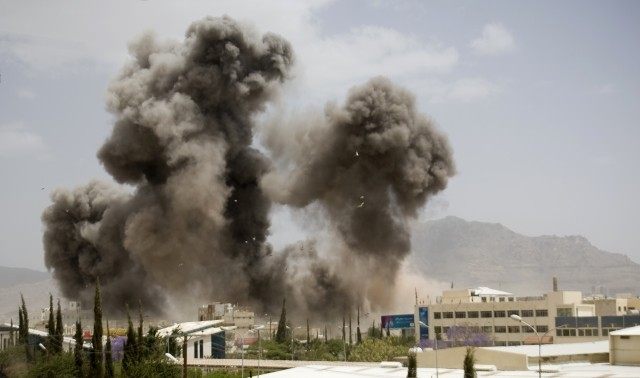According to a report by al-Jazeera, several American generals are skeptical that Saudi Arabia’s intervention in Yemen will succeed. A “senior commander at CENTCOM” claimed the Saudis did not keep the operation secret from American authorities because they feared the Obama Administration inform Iran, but rather because the Saudis feared the Pentagon would dismiss their battle plan as a “bad idea” and try to talk them out of it.
“Military sources said that a number of regional special forces officers and officers at U.S. Special Operations Command (SOCOM) argued strenuously against supporting the Saudi-led intervention because the target of the intervention, the Shia Houthi movement — which has taken over much of Yemen and which Riyadh accuses of being a proxy for Tehran — has been an effective counter to Al-Qaeda,” writes al-Jazeera.
Consultant Michael Horton expressed strong skepticism towards the notion that the Houthi rebels in Yemen are serving as Iranian proxies.
“These constant reports that the Houthis are working for the Iranians are nonsense, but the view is right out of the neocon playbook,” said Horton. “The Israelis have been touting this line that we lost Yemen to Iran. That’s absurd. The Houthis don’t need Iranian weapons. They have plenty of their own. And they don’t require military training. They’ve been fighting Al-Qaeda since at least 2012, and they’ve been winning. Why are we fighting a movement that’s fighting Al-Qaeda?”
For the record, the Iranians have continued to send the Houthis weapons — to the point where even the Iran-aligned Obama State Department asked them to stop last week.
Horton also is not bullish on the Saudis’ ability to carry out their Yemen battle plan successfully. “Frankly, they cannot begin to manage this,” he said. “They have all the toys but few people who know how to effectively use them. Their NCO and officer corps are largely untested, and their enlisted men are drawn from the lowest rungs of Saudi society. If they get bogged down in Yemen, I wonder about the loyalty of many of the soldiers and NCOs. The Egyptians will not fare much better.”
Reuters adds that humanitarian concerns about the situation in Yemen have been exacerbated by the Saudi air strikes. The United Nations “said about 150,000 people had been driven from their homes by three weeks of air strikes and ground fighting and more than 750 people killed,” and that “many schools, hospitals and mosques had been damaged or destroyed in the conflict.”
On the other hand, contrary to al-Jazeera’s gloomy assessment of the campaign, Reuters finds some evidence that it is working. Although insurgent former president Ali Abdullah Saleh, who is allied with the Houthis and helped depose current President Hadi, is still defiant in public, there are reports that “some army units loyal to Saleh have defected and now support Hadi,” and Saudi television news claims Saleh and his family might be looking for a way out of Yemen.

COMMENTS
Please let us know if you're having issues with commenting.